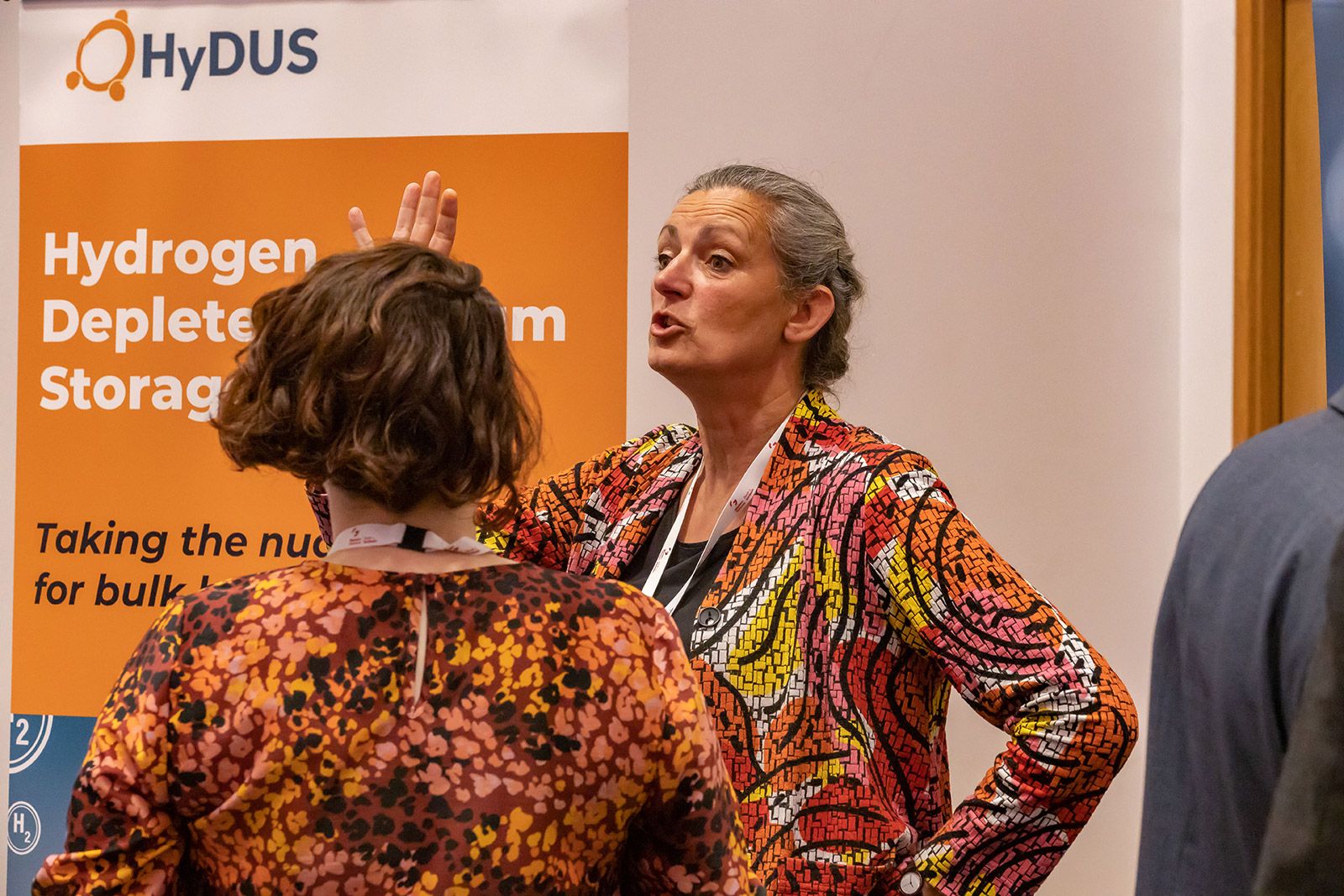Hydrogen Gateway Coverage June 2023
This month, a team from HyDUS took to the hugely successful Hydrogen Gateway Conference, hosted by Western Gateway at the ICC Wales to discuss and showcase the project and its hydrogen storage capabilities.
The Hydrogen Gateway was an event dedicated to highlighting the role of hydrogen in achieving net zero in the UK, and bringing attention to developing and available technologies that have the potential to revolutionise the UK’s green energy scope.
The day consisted of a great variety of addresses, workshops and panels, with talks namely from Julie James MS, the Welsh Minister for Climate Change and Chris Skidmore, the Chair of the UK Net Zero Review. The event was well attended, with over 500 representatives from across business, industry and government joining in on the conversation about how hydrogen can contribute to decarbonising the UK energy economy.
In attendance from HyDUS were Monica Jong (UKAEA), Chris Webster (EDF), Andrei Irini (Urenco) and Professor Tom Scott and Jacek Wasik of the University of Bristol – bringing together all the partners working on the project to discuss and showcase HyDUS tech with conference attendees.

Professor Tom Scott of the University of Bristol represented HyDUS on the panel “Hydrogen supply chain, storage, and fuel switching”, highlighting to the impact the HyDUS project could have on the hydrogen supply chain.
“It was a fantastic opportunity to raise awareness of the HyDUS technology to a very broad audience including government, regulators, operators and investors. The feedback was extremely positive and will hopefully lead to numerous technology deployment opportunities over the next few years.
The conference really reinforced that the HyDUS technology will neatly fill a strategically important gap for UK energy storage needs, enabling our transition to net zero carbon emissions.”

By utilising stockpiled depleted uranium, HyDUS researchers have shown that it is possible to store hydrogen more efficiently than current methods allow in the form of uranium trihydride (UH3). Large, grid-scale storage of hydrogen will be integral to realising the UK’s commitment to greener energy production and net zero capabilities.